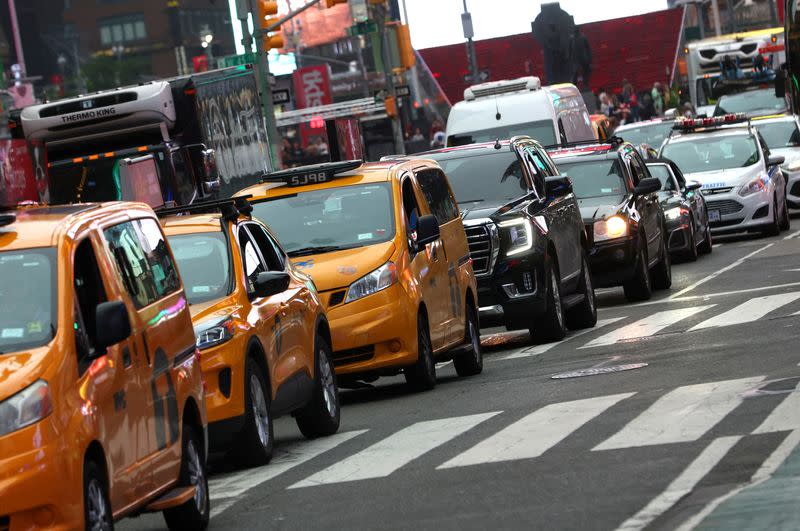New York transit agency votes to indefinitely halt Manhattan congestion pricing

By David Shepardson and Jonathan Allen
(Reuters) -A New York transit agency voted on Wednesday to indefinitely halt congestion pricing in Manhattan that was set to start on June 30 after the state's governor directed the action.
The Metropolitan Transportation Authority voted to halt the program and said it was putting $16.5 billion in capital projects on hold -- including major expansion projects such as extending the Second Avenue Subway, upgrading aging signal systems and train cars and purchasing 250 electric buses.
New York State Comptroller Thomas DiNapoli said in a report on Tuesday the state had estimated $17 billion would need to be removed from the current $55.4 billion transit capital plan to address the loss of congestion pricing revenue.
The MTA has already canceled contracts and halted work on one key subway expansion project and has said it could put federal grant funding at risk.
"Whatever you think about congestion pricing, you cannot deny the harm that unchecked traffic does to New York's economy; not only that, but also to cities all over the country," said MTA CEO Janno Lieber.
Governor Kathy Hochul cited high inflation and a desire to prevent commuters or tourists from opting not to visit because of the additional charge in her decision to halt implementation.
Hochul said in a statement Wednesday she would work with the MTA "to further develop a comprehensive approach to fund" capital projects and work with the state legislature "to implement comprehensive solutions and ensure appropriate funding sources in next year’s budget."
New York City's congestion pricing program, the first of its kind in the U.S., would have charged a toll of $15 during daytime hours for vehicles driving in Manhattan south of 60th Street. London implemented a similar charge in 2003.
MTA has said the charge would cut traffic by 17%, improve air quality and increase mass transit use by 1% to 2%, as well as generating $1 billion to $1.5 billion a year and supporting $15 billion in debt financing for mass transit improvement.
In 2019, state lawmakers approved the plan to help fund improvements in mass transit using tolls to manage New York City's traffic, the most congested of any U.S. city.
Congestion pricing had been projected to start in 2021 but the federal government under former President Donald Trump took no action.
New York says more than 900,000 vehicles enter the Manhattan Central Business District daily, which reduces travel speeds to
around 7 miles per hour on average.
(Reporting by David Shepardson in Washington and Jonathan Allen in New York; Editing by Bill Berkrot and Diane Craft)

 雅虎香港新聞
雅虎香港新聞 